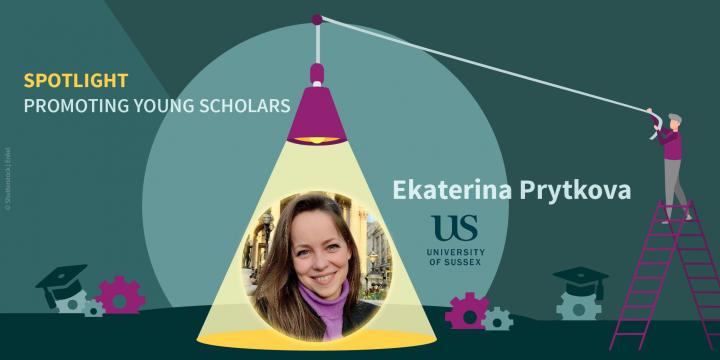Spotlight: Promoting Young Scholars - Ekaterina Prytkova
When economists don’t talk to technology specialists, or vice-versa, the results can range from commercially disappointing to downright disastrous. Think of overengineered cars or planes that flopped in the marketplace, or of recent tragic failures in aircraft safety when bean counters prevailed over engineers.
The same conundrum arises in the economics of labour markets, now that certain emerging technologies threaten to bring about considerable disruption. Few economists are conversant with the workings, promise and peril of such new technologies, while few technology developers have an inkling of the potential economic or social impact of their creations.
Thank God then that there are experts like Ekaterina Prytkova. An accomplished economist by heart and training, she is also very much at home with artificial intelligence, neural networks, foundation models and big data. In other words, she occupies an ideal position from which to anticipate the potential impact of such emerging technologies on things like the labour markets—and beyond.
She started out by earning her BSc in Economics in St. Petersburg, Russia, focusing on industrial organization, a perspective she has retained to this day. She then got her MSc on Management, also in St. Petersburg, with her dissertation dealing with innovation diffusion. During that time she did a stint in Germany as an exchange master student, where she took courses on Industrial Dynamics and Economics of Innovation.
That sparked her interest in applying economics to the study of the technologies now coming into play and the structural changes they might bring about. She delved deep into this field while getting her PhD in Germany, with a dissertation on the nature of information and communications technologies and artificial intelligence, and how they affect industrial trajectories. A subsequent paper she published dealt with all the areas at the heart of her interests: industrial organisation, technological change, semiconductor industry and artificial intelligence.
But she wouldn’t stop there. While still engaged in her PhD she developed an interest in machine learning and especially in natural language processing (NLP), one of the hot approaches in AI that has led to the so-called foundation models that are all the rage at the moment. She applied NLP to her single-author paper to study the ICT system and the position of AI in it.
It is easy then to see why Ekaterina’s expertise is so highly valued at Pillars. Using her specialised NLP knowledge, she and her colleagues are currently working, at the University of Sussex, on identifying emerging automation technologies and estimating industrial exposure to these technologies by applying big data tools to patents and relevant publications.
With such minds as hers at work, economics and technology can reliably go hand-in-hand to orient policymaking on labour markets for many years to come.
